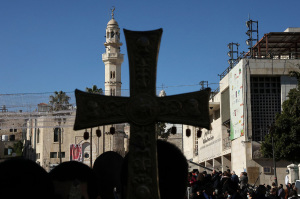Righteous Kill
3 Stars – Thought-Provoking
The fact that more police do not lose their moral footing is an amazing thing. Having to put their own lives in harm's way in order to protect us, police officers have to immerse themselves in the underside of humanity with all the stench that such a place emits. When their personal danger and sacrifice is added to the often frustrating reality that dangerously destructive people are able to avoid prosecution because of legal technicalities, then a sense of righteous indignation can overwhelm the soul. Though this film chronicles an extreme reaction, a psychological and moral study of these pressures is presented in Jon Avnet's film "Righteous Kill."
Written by Russell Gewirtz (Inside Man), the story is complex and engaging though its subject is dark and unpleasant. The central characters are two veteran detectives, each with over thirty years of service in the New York City Police Department. Turk (Robert De Niro) is the passionate and compassionate member of the partnership who angrily reacts to both the horror of the crimes he investigates as well as the injustices he sees in the courtroom. Rooster (Al Pacino) is the intelligent and contemplative partner who plays chess in the park as well as evaluates the next moves of the killers and rapists they are trying to capture.
The plot revolves around a serial murderer who begins killing the criminals in a personal vigilante crusade. As the evidence mounts, it becomes increasingly clear to the two detectives that it is a police officer who is committing the crimes. Although they emotionally applaud the "righteous" nature of the judgment upon the criminals who are killed, they are nevertheless charged with the legal and moral responsibility to bring the killer to justice.
Included on their investigative team is their lieutenant, Hingis (Brian Dennehy) and two younger detectives, Simon Perez (John Leguizamo) and Ted Riley (Donnie Wahlberg). Adding a twist of both psychological dysfunction and sexual tension is Karen Corelli (Carla Gugino), whose passion for sadomasochism intersects with her work as an investigator of brutal and sexual murders and rapes.
Since the story is a mystery, we won't tell any more of the plot, but the theme is resplendent with spiritual and moral questions. Who is a righteous person and what is a righteous act? What is faith and does it matter in whom we place that faith? What is trust and loyalty and what is a loyal act? When injustice occurs early in our life, how will it erupt later? What makes vigilante justice enticing and yet what would happen if we took matters into our own hands – both to us and to our shared lives?
"Righteous Kill" proclaims by its title that the deaths we will see are done for righteous reasons. The engaging twists within the film grab both our attention and our minds as we walk through both the morality and the implications of that claim. The film is R rated for language, violence and sexual content. This is not a film for sensitive viewers.
Discussion:
1. The observation that "99% of the people are not even aware of the 1% who are trying to harm them" explains why we need police protecting us. Have you ever had the need to turn to the police for protection in your own life? How did the police respond?
2. The fact that the murderer was abused as a young boy planted a time-bomb within him as he looked for a "perfect role-model." When the role-model disappointed him, he fell into a moral and psychological abyss. What do you think would have happened if he had been able to discuss and truly purge his inner pain with his counselor instead of using the diary to poetically plan his murders?
3. Why do you think it is that more police do not lose their moral footing? Or do you disagree with this assumption? On what evidence do you base your opinion?
4. Is killing a person ever a righteous action? If so, under what circumstances? Why do you answer as you do?
5. "Do you identify with any of the people in the film, in terms of your own response to a personal crisis?"





























